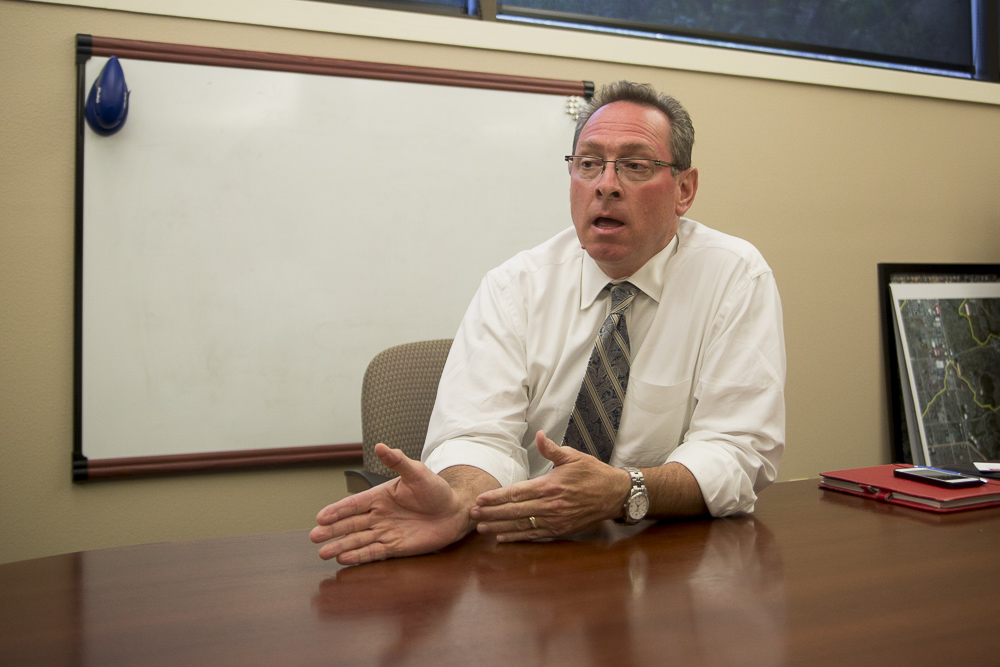With the deadline for a balanced budget arriving on May 19, financial decisions regarding the coming fiscal year are in the process of being made.
Each year, a balanced budget must be presented before the Board of Trustees providing details for the coming fiscal year, which starts on July 1. While nothing is concretely decided at the moment, vice president of business and financial affairs Michael Pierce anticipates higher student enrollment next year, which may relieve some pressure in the budget.
At the same time, decisions to cut certain programs have had to be made. While majors like undergraduate anthropology are being phased out, many of the decisions concerning which programs to keep are based on popularity among students.
TUITION PROVIDES
As Biola is a tuition-dependent school, many decisions await the confirmation of enrollment numbers. Although administration is making some of those decisions, Pierce expects many of major ones to be made within the next four to six weeks as his office gets more information.
“A lot of that depends on how enrollment is shaping up, the incoming class and how many students will graduate. We are trying to get a read on what enrollment will look like before we can make any final expense-related decisions,” Pierce said.
Although exact numbers cannot be known at this time, Lee Wilhite, vice president of enrollment, marketing and communications suggests predictions from the office of enrollment are optimistic. Applications are up 12 percent from last year’s total, with about 500 more students having applied.
In the meantime, administration is working with the information they do know. Some government policies will prompt an increase in expenses.
“We just got our health care cost settled so we are going to have an increase in employee’s health care… We know minimum wage went up so minimum wage will be getting a raise Jan. 1,” Pierce said. “There are some things that we know enough to make estimates, and we’re working through all of that right now.”
With increases in yearly costs, Wilhite says administration is working to reduce the impact of those rising costs of students.
“When we work with employee benefits, like health care and increase in cost in maintenance and things like that, these are all costs [that] are all rising for the university, but we are trying to minimize the impact of that on our students,” Wilhite said.
CURRENT AND FUTURE INVESTMENT
In an attempt to make the most out of the budget, cost reduction initiatives are already underway across campus.
“You might have seen in the library recently people going around and replacing light bulbs. Kind of seems like a silly thing, but by moving to those LED lights, we are going to save a great deal of money once it gets throughout the campus. So we are looking for things like that where we can save some money,” Pierce said.
Energy-saving progress will also extend to Biola’s central plant. Investment into the plant will help to generate a great amount of energy for the school, Pierce says.
Furthermore, the school will be providing a greater focus on providing an education for older students who might be returning to college.
“We’re looking at the online education environment and the adult education is really, really growing… We are investing right now pretty substantially on our online education and what we’re calling a post-traditional student,” Pierce said.
According to Pierce, there are currently three programs where students can transfer their units in from a community college. There are also plans to launch more in the future.
TUITION AND COST INCREASES
Pierce believes the increase in tuition to continue within the range of three to four percent. The school is also focusing a greater amount of money into scholarships to counteract tuition increase.
In light of the reductions that might have to be made, Pierce emphasized the importance of putting students’ needs first.
“We’re trying our best not just to balance a budget. That’s important, but in the scheme of things we want to have this as an attractive affordable place for students to come so they can impact the world for Christ,” Pierce said.







